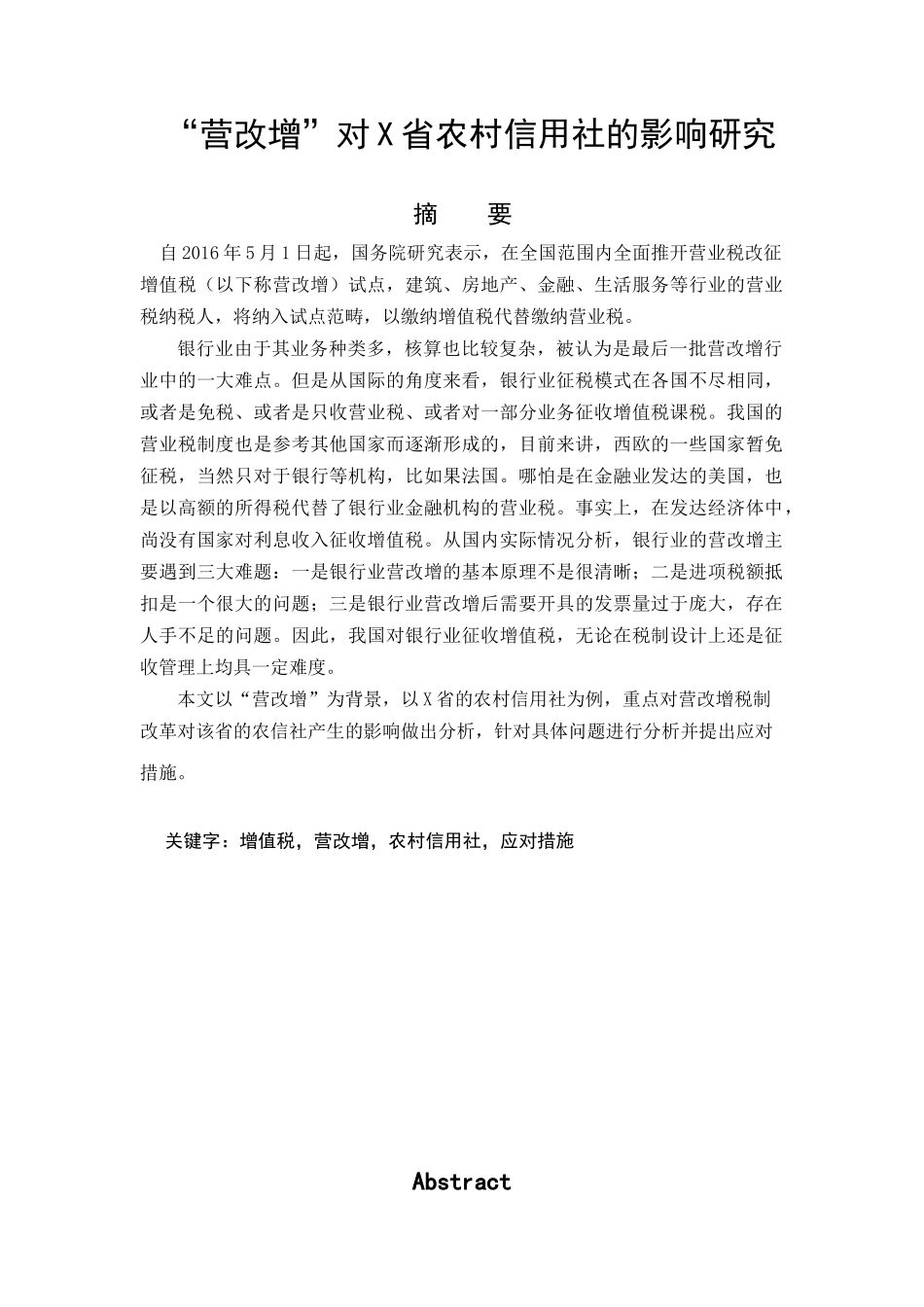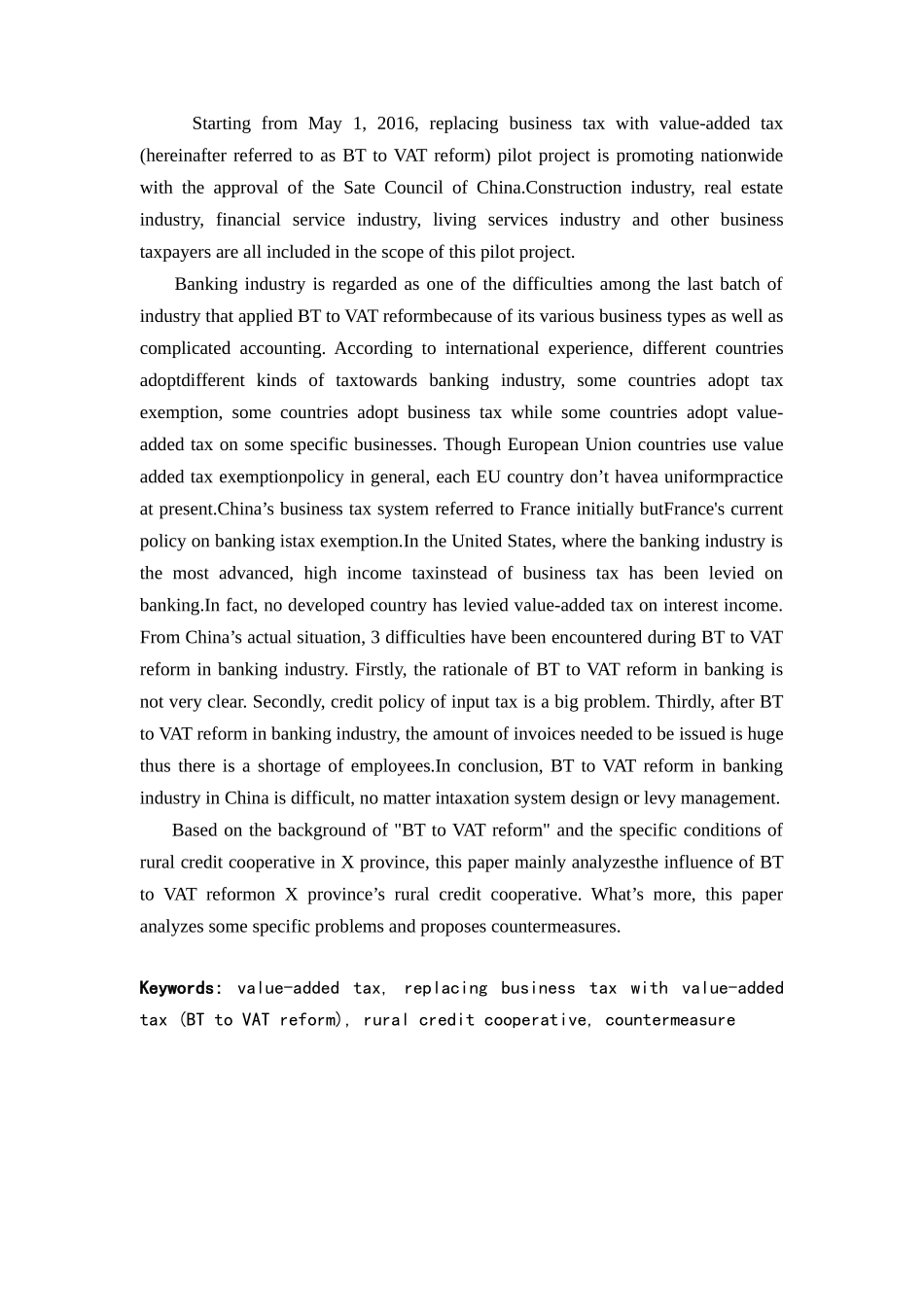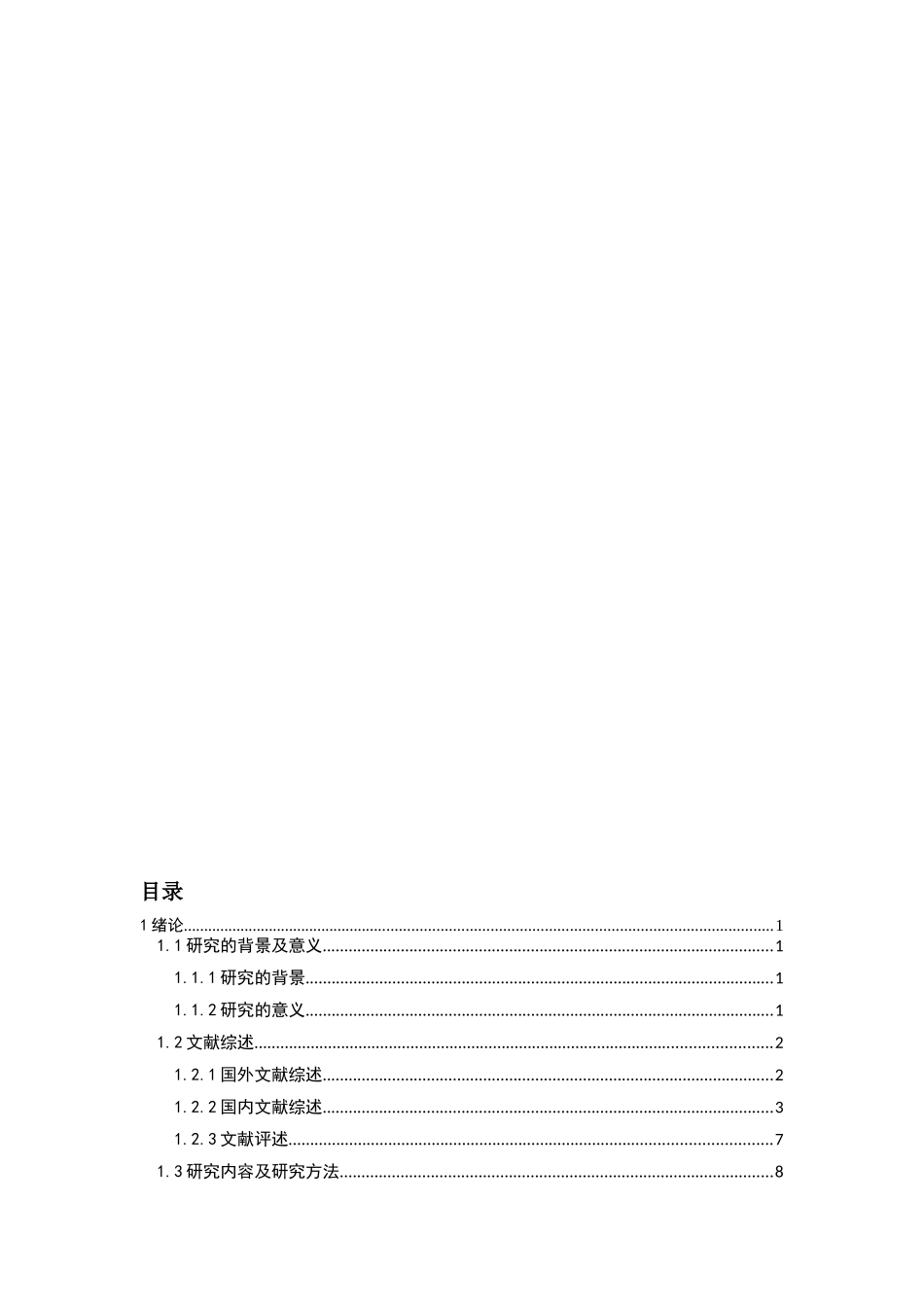“营改增”对 X 省农村信用社的影响研究摘 要 自 2016 年 5 月 1 日起,国务院研究表示,在全国范围内全面推开营业税改征增值税(以下称营改增)试点,建筑、房地产、金融、生活服务等行业的营业税纳税人,将纳入试点范畴,以缴纳增值税代替缴纳营业税。银行业由于其业务种类多,核算也比较复杂,被认为是最后一批营改增行业中的一大难点。但是从国际的角度来看,银行业征税模式在各国不尽相同,或者是免税、或者是只收营业税、或者对一部分业务征收增值税课税。我国的营业税制度也是参考其他国家而逐渐形成的,目前来讲,西欧的一些国家暂免征税,当然只对于银行等机构,比如果法国。哪怕是在金融业发达的美国,也是以高额的所得税代替了银行业金融机构的营业税。事实上,在发达经济体中,尚没有国家对利息收入征收增值税。从国内实际情况分析,银行业的营改增主要遇到三大难题:一是银行业营改增的基本原理不是很清晰;二是进项税额抵扣是一个很大的问题;三是银行业营改增后需要开具的发票量过于庞大,存在人手不足的问题。因此,我国对银行业征收增值税,无论在税制设计上还是征收管理上均具一定难度。 本文以“营改增”为背景,以 X 省的农村信用社为例,重点对营改增税制改革对该省的农信社产生的影响做出分析,针对具体问题进行分析并提出应对措施。 关键字:增值税,营改增,农村信用社,应对措施Abstract Starting from May 1, 2016, replacing business tax with value-added tax (hereinafter referred to as BT to VAT reform) pilot project is promoting nationwide with the approval of the Sate Council of China.Construction industry, real estate industry, financial service industry, living services industry and other business taxpayers are all included in the scope of this pilot project. Banking industry is regarded as one of the difficulties among the last batch of industry that applied BT to VAT reformbecause of its various business types as well as complicated accounting. According to international experience, different countries adoptdifferent kinds of taxtowards banking industry, some countries adopt tax exemption, some countries adopt bus...












